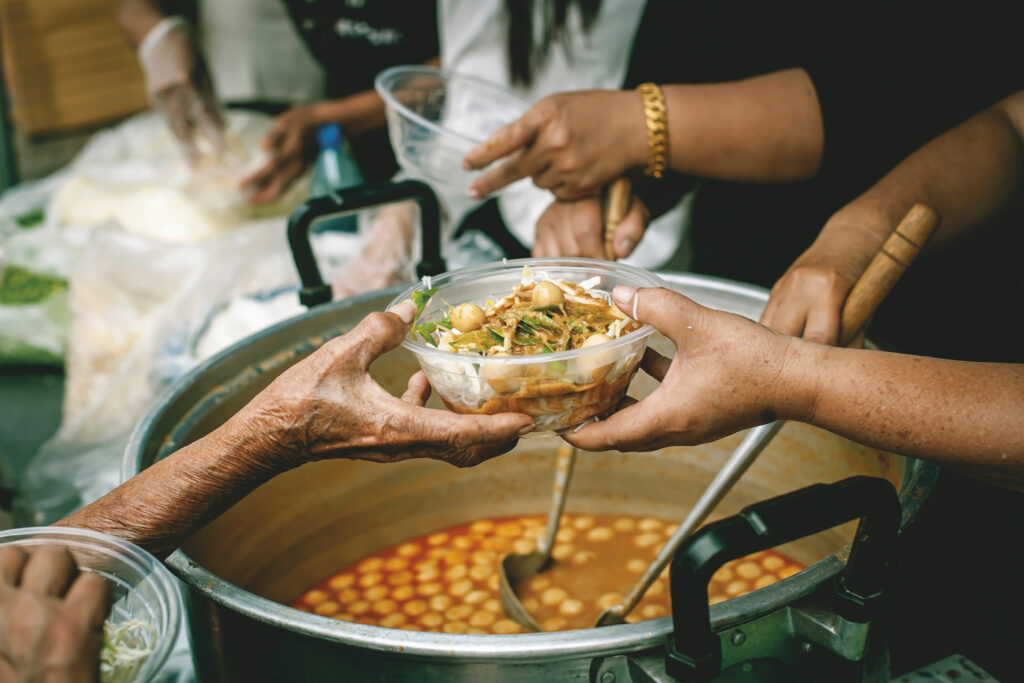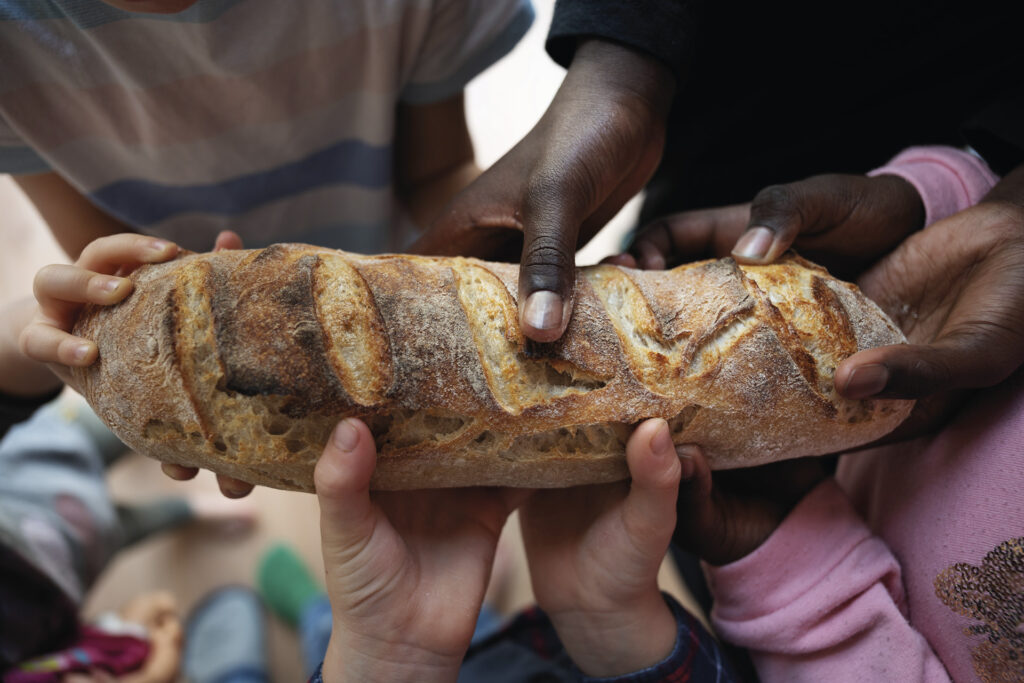By Dr Elaine Pratley
Rotary Peace Fellow Positive Peace Activator, Founder of Peace Inc. and Peace Kitchen
Despite 793 million undernourished people around the globe, one-third of all food produced for human consumption is wasted.
Every year, Australian farmers discard millions of tonnes of edible fruit and vegetables deemed too oddly shaped or blemished for commercial sale.
Ranked 10th most wasteful country in the world, Australia produces 7.6 million tonnes of food waste each year.
If one quarter of the food currently wasted around the world could be saved, there would be more than enough to feed 870 million hungry people. The world clearly doesn’t have a food shortage problem. There is more than enough food to feed the world.
How is famine and food insecurity a lived reality for millions despite a global abundance of food?
Food waste researcher David Boarder Giles argues that this paradox exists because food waste is not a matter of excess and failed food distribution networks but an issue of profits. By discarding perfectly edible food, retailers ensure that food prices for fresh produce remain high. Many consumers, as a result, now expect only ‘perfectly’ shaped bananas and undented canned food. In the world of food retailers, manufacturing food scarcity pays dividends.
This waste practice that allows millions to go hungry despite an abundance of food is more than an environmental issue – it’s a global peace and justice issue.
Planetary peace for all to thrive
The Institute for Economics and Peace identifies ‘equitable distribution of resources’ as one of eight key factors for ‘positive peace’. It defines positive peace as the attitudes, institutions and structures that sustain peaceful societies.

In Australia, the inequitable distribution of food has resulted in 3.7 million households experiencing food insecurity in the past 12 months. That’s more than the number of households in Sydney and Melbourne combined, struggling to consistently access adequate food. Aside from the rise in cost of living, wasteful food practices underpin much of that avoidable food insecurity.
Fortunately, many young people are challenging the attitudes that normalise food waste.
“Public accountability helps ensure that, as a norm, still perfectly edible food is not discarded but redirected to those struggling to find food to eat.”
As a lawyer and peacebuilder, I’ve spent five years studying how our food habits influence peace and conflict. Initially, as part of my doctoral research, I focused on how sharing meals fosters community – something Rotarians practise weekly. I quickly realised that peace must extend beyond inner peace and social connections to include the ecological systems that sustain life. Without sustainable and equitable food systems, we cannot function peacefully, even with strong governance and cohesive societies.
Despite 793 million undernourished people around the world, one-third of all food produced for human consumption is wasted.
For many of the youth (aged 16 to 25) in my research, global peace means planetary peace where all can flourish. Out of necessity and as a matter of survival, they understand that their future is intertwined with the health of our forests, farms, oceans, and air. Sadly, this awareness often comes from a place of profound fear for their future livelihoods.
In my peacebuilding work at schools, where I help children develop positive conflict skills, I’m struck by their fear and anger about the future.
Caring attitudes and behaviours as active hope
Despite an existential anxiety, many young people contend for their futures with active hope.
They know that simple acts, like how they cook and how they manage food waste, can promote a sustainable and equitable world. By respecting food resources and consciously reducing their food waste, young people practise a respect for distant peoples and a gratefulness for each meal that appears more spiritual than ethical. We sometimes forget that growing food is no simple feat: it requires a seamless and harmonious collaboration between farmers, seeds, soil, worms, and the weather. Our empty supermarket shelves are stark reminders of what can happen when this fails to happen. For my youth collaborators, wasting food disrespects the earth and people who have little to eat.
Reducing food waste doesn’t have to be hard. Many people creatively cook every part of vegetables. During the pandemic lockdowns, university students frequently exchanged unwanted food products, ensuring their food surplus fed hungry bodies. Less common, but slowly growing in popularity worldwide, is the dumpster diving movement, where adventurous eaters scavenge for still edible food discarded behind supermarkets, bakeries and grocers.

Young people are doing simple but important acts to reduce food waste. While their actions might be temporary solutions to correcting a broken food system, they are valuable acts of care for the earth and the future generations who will depend on it. By reducing their personal waste, they directly contribute to environmental sustainability by conserving resources like water, land and energy. By demanding only what they need, they incentivise farmers and retailers to grow less, reducing greenhouse gas emissions and mitigating climate change.
Young people are contributing to positive peace by reframing their attitudes and modifying their behaviours. They do so because they know our futures depend on them doing so. For them, excessive food waste isn’t just about conservation but a matter of social justice and global peace for those who go hungry.
The missing peace: caring food structures and institutions
However, building a world where everyone is adequately fed requires collective action and institutional change. For positive peace that sustains peaceful societies, we need equitable institutions and structures just as much as we need caring attitudes and behaviours towards hungry bodies and overworked lands.
This means, for healthy food systems, more people must demand food policies and corporate practices that support the equitable and sustainable distribution of food resources. Public accountability helps ensure that, as a norm, still perfectly edible food is not discarded but redirected to those struggling to find food to eat.
With 1.4 million Rotarians in the world, I am confident this is a challenge Rotary can meet. By seeking sustainable food policies and practices from our governments (and from the caterers who feed us at our district conferences and weekly meetings), we can reduce food waste for positive global impact 1.4 million bites at a time.
